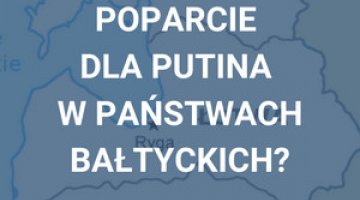Angela Merkel in Lithuania
On 6 September the German chancellor Angela Merkel paid a visit to Lithuania. Vilnius had hoped for quite a lot from this visit: it was expected that Germany would back Lithuania’s energy policy, particularly Lithuania’s efforts to integrate the energy markets of the Baltic states and the EU states and to decrease the dominance of Gazprom in the Lithuanian gas sector (in which Lithuania is cooperating with the German company E.ON.).
Merkel expressed her understanding of the particular situation in Lithuania and other Baltic states. Her main objective was however, as it seems, to strengthen the economic and political position of Germany through the promotion of cooperation between EU countries and Russia in which the position of Lithuania to date constituted a certain barrier.
Merkel emphasised Lithuania’s considerable role in shaping the EU’s eastern policy (within the framework of the Eastern Partnership); she however underlined the importance of rapprochement with Russia. Chancellor Merkel expressed her understanding of Lithuania’s position and that of other Baltic states which are rather reserved about the idea of rapprochement with Russia due to their historical experiences. She however pointed to Dalia Grybauskaite as a politician able to make a breakthrough in Lithuania’s relations with Moscow. Thus Merkel supported the position of Russia which sees in Grybauskaite a chance to establish dialogue with Lithuania. In Angela Merkel’s opinion, one of the first challenges for Lithuania was the issue of breaking down Vilnius’s resistance to Poland’s initiative of extending a non-visa circulation regime to all the Kaliningrad district and offered support for related indispensable amendments in the EU legislation system.
The visit did not meet the expectations of Lithuanians. In energy issues Merkel declared only political support whereas Lithuania had expected the German chancellor to make a solid commitment from German companies (Lithuania has not yet revealed names of potential investors with whom it is holding talks, which gives rise to speculations that they do not meet Lithuania’s criteria) to the promotion of the construction of a new power plant in Lithuania . German companies could provide a counterbalance to Russia’s economic influence in Lithuania while remaining uncontroversial investors from the point of view of Moscow.
<jhyn>





